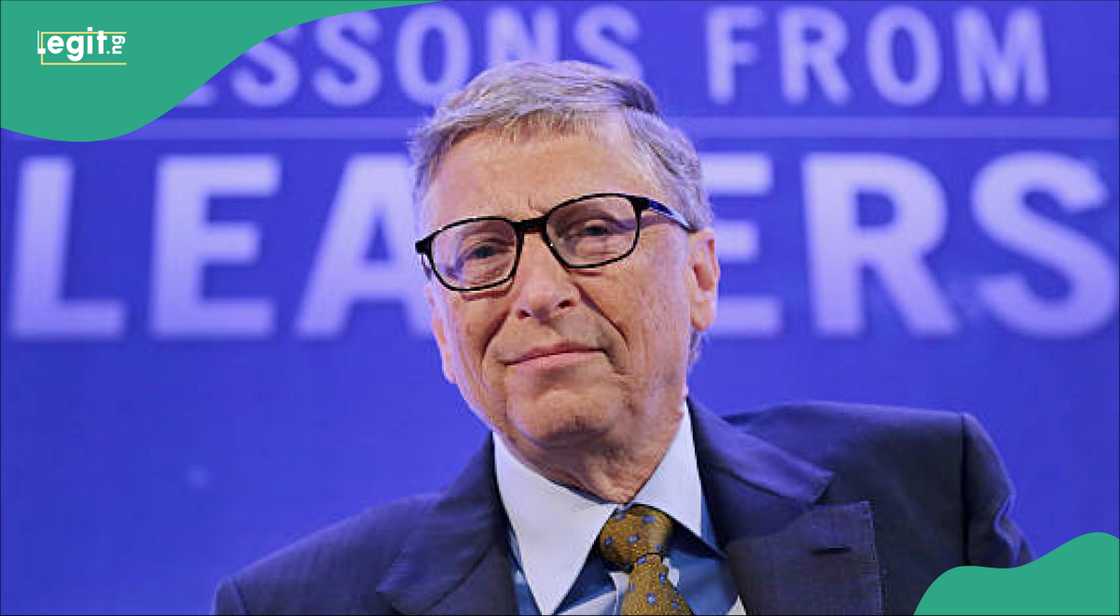Bill Gates Announces That He Will Give Most of His $200bn Fortune to Africa
Microsoft co-founder and philanthropist Bill Gates revealed plans to allocate the majority of his wealth towards improving healthcare and education services in Africa over the next 20 years.
The 69-year-old tech billionaire expressed his vision in Ethiopia’s capital, Addis Ababa, highlighting the transformative power of human potential through health and education.

Source: Getty Images
Gates reiterated his commitment to empowering African nations, stating, "By unleashing human potential through health and education, every country in Africa should be on a path to prosperity."
His pledge aligns with the announcement made last month that he would donate 99% of his wealth—expected to reach $200 billion (£150 billion) by 2045—before his foundation ceases its operations.
Speaking at the African Union (AU) headquarters, Gates confirmed that Africa would benefit substantially from his financial contributions.
"I recently made a commitment that my wealth will be given away over the next 20 years. The majority of that funding will be spent on helping you address challenges here in Africa," he declared.
Graça Machel, Mozambique’s former First Lady, praised Gates’ commitment, describing it as timely. She stated:
"We are counting on Mr Gates' steadfast commitment to continue walking this path of transformation alongside us."
Her remarks depicted the significance of philanthropic support during a period of economic and healthcare challenges in Africa.
Gates’ pledge comes amid concerns over dwindling foreign assistance, as the US government has significantly cut aid to Africa, including funding for HIV/Aids treatment programmes.
The cuts were part of former US President Donald Trump’s "America First" policy, raising alarm over the future of healthcare services on the continent.
The Gates Foundation, renowned for its work in Africa, reaffirmed its dedication to strengthening primary healthcare systems.
Gates stressed the importance of maternal health and nutrition, noting, "What we've learned is that helping the mother be healthy and have great nutrition before she gets pregnant, while she is pregnant, delivers the strongest results. Ensuring the child receives good nutrition in their first four years as well makes all the difference."
Addressing young innovators, Gates encouraged the integration of Artificial Intelligence (AI) into healthcare.
He pointed to the success of mobile banking on the continent as an example of technological progress and urged African nations to embrace AI-driven solutions.
"Africa largely skipped traditional banking and now you have a chance, as you build your next-generation healthcare systems, to think about how AI is built into that," he advised.
Gates cited Rwanda’s AI-enabled ultrasound technology as an example of how innovation is already enhancing healthcare services, particularly in identifying high-risk pregnancies.
The Gates Foundation outlined three core priorities: reducing preventable maternal and infant deaths, eradicating infectious diseases affecting future generations, and alleviating poverty for millions.
The foundation also confirmed its planned closure in 2045. "At the end of 20 years, the foundation will sunset its operations," it stated.
Gates, who recently vowed to accelerate his donations, reaffirmed his resolve to avoid dying wealthy. He wrote, "People will say a lot of things about me when I die, but I am determined that 'he died rich' will not be one of them."
Despite planning to give away 99% of his fortune, Gates would remain a billionaire, as Bloomberg ranks him among the world's wealthiest individuals.
Since co-founding Microsoft in 1975 with Paul Allen, Gates has significantly shaped the tech industry.
However, he has gradually distanced himself from corporate leadership, resigning as CEO in 2000 and stepping down as chairman in 2014.
Influenced by philanthropists such as Warren Buffett, Gates’ charitable vision has guided his foundation’s initiatives for decades.
While praised for his philanthropic efforts, some critics argue that Gates’ foundation wields excessive influence over global healthcare and uses its status to benefit from tax advantages.
Legit.ng earlier reported that Microsoft co-founder Bill Gates announced Thursday an accelerated timeframe for giving away his fortune as he touted artificial intelligence as a game-changer to boost public health and save lives globally.
Under a new timetable, the Gates Foundation will spend more than $200 billion over the next 20 years, shutting down in 2045. The organization had originally planned to close 20 years after Gates' death.
The announcement came as Gates took aim at another billionaire tech titan, Elon Musk.
PAY ATTENTION: Сheck out news that is picked exactly for YOU ➡️ find the “Recommended for you” block on the home page and enjoy!
Source: Legit.ng













